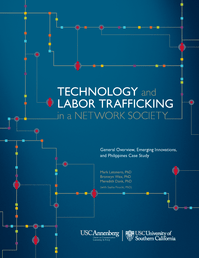Longtime political activist and Pasadena Weekly co-founder Marvin Schachter died early Tuesday morning after being hospitalized with a heart infection at Kaiser Permanente Hospital on Sunset Boulevard in Los Angeles.
Schachter, 90, was involved in one way or another with nearly every major progressive cause since the mid-20th-century — from ending segregation and the Vietnam War to supporting disarmament, equal rights for women and minorities and opposing commercial use of nuclear power as well as American military involvement in Central America, most recently protesting against the ongoing wars in Afghanistan and the Middle East.
At the local level, Schachter, who also regularly wrote columns for the newspaper he helped start more than 30 years ago, devoted much of his time to ensuring senior citizens were cared for, chairing the Pasadena Senior Advocacy Council since 1995 and serving as president of the Advisory Council of the Los Angeles County Area Agency on Aging. He also served on the California Commission on Aging and worked as a delegate to the White House Conference on Aging. He was also a Menorah Housing Foundation vice president.
Schachter is survived by his wife, Esther, daughters Amanda and Pam, and two grandchildren, Max and Emma Rothschild. Family members said plans for a memorial service were not finalized as of Tuesday.
“He was a remarkable person, and an even more remarkable father and grandfather,” Amanda and Pam said in a joint statement to the Pasadena Weekly. “We loved him even more than he loved us.”
News of Schachter’s death early Tuesday morning left community members in mourning.
ACLU Pasadena/Foothills Chapter President Dick Price called Schachter “an amazing guy” and a good friend to many people.
“The last time we saw him he was driving his car to a panel session about fighting government surveillance — tootling down the road to keep Big Brother out of our business. He was doing what he loved to do, right into his 90s,” said Price, who along with Sharon Kyle publishes the online magazine LA Progressive.
“I came to know Marvin because of his commitment to civil liberties — a commitment we shared,” said Kyle, who is also an ACLU Pasadena/Foothills Branch board member. Schachter was a lifetime member of the ACLU of Southern California Board of Directors.
“Always generous with his time and just as generous with his stories, his presence at any meeting almost surely meant that a pearl of wisdom would be offered,” Kyle said. “I will really miss Marvin and am proud to call him friend.”
Local political leaders and others were saddened to hear of Schachter’s passing.
“Pasadena owes much to Marvin Schachter, who was part of the progressive soul of the city and a true guardian of our civil liberties,” said Democratic Congressman Adam Schiff. “Marvin was always willing to stand up and fight the good fight — from battling anti-Semitism and ageism to the preservation of Social Security and Medicare. Marvin was always energetic, passionate and thoughtful and brought a world of experience to bear on any issue. He enjoyed universal respect and admiration and will be deeply missed.”
“When you look at who has been a leader in aging issues, the name Marvin Schachter is at the top of the list,” said Democratic Assemblyman Chris Holden of Pasadena. “Every time I think of senior housing, I think of Marv. He put the issue on the table for policymakers to address in a serious way. He inspired people all over the state to get involved and stand up for what they believe in. Even as he approached his ninth decade, he continued to fight and that has made all the difference. He was a wonderful human being and will be sorely missed.”
In recent years, Schachter suffered from hearing loss, but still maintained his zest for social and political engagement.“In the last year or so he became very hard of hearing, and as an inveterate attendee at hundreds of meetings of seniors affairs, of civil liberties, and others, he could barely follow the meetings,” said Kris Ockershauser of the ACLU Pasadena/Foothills Branch. “Yet he continued to attend and speak to the issues. I felt it must have been a melancholy time for Marvin, with a lifetime of experience in activism and so much to say on contemporary issues, to understand that his gathering deafness would someday bring an end to it.”
Pasadena Weekly columnist and author Ellen Snortland described Schachter as a friend to all.
“Marvin Schachter was more than a personal friend to me and to many of us in Southern California,” Snortland said. “He was a friend to humankind and to the vision of what is possible when people pull for one another. Marvin had the big picture; that until all of us had justice, no one really has it. He saw us as a huge human family and he did everything he could do to make us all better.”
In October, the ACLU Pasadena/Foothills Chapter honored Schachter at their annual Garden Party with a Pioneer of Social Justice Award. In November, the ACLU of Southern California honored Schachter, along with Democratic US Sen. Elizabeth Warren of Massachusetts, at the organization’s annual Bill of Rights Dinner.
According to a 2014 story in PW, Schachter’s road to Pasadena and political activism began as a result of an FBI surveillance file prepared on him over his leftist activities when he was a college student in the 1940s. That revelation to his bosses in the 1950s cost him a sales job in Chicago. Schachter instead took an even more lucrative position in clothing sales, which led him and his family to California.
“It was totally accidental, thanks to the FBI,” Schachter said.
The youngest of four children, Schachter grew up in Brooklyn during the Great Depression. He said the tough times of the ’30s were influential years for him in determining the direction of his life. His father was in the retail fur trade and was unemployed much of the time. But even harder times were coming as fascism began rising around the world, with war erupting in Spain and Adolf Hitler seizing power in Germany. Several members of Schachter’s family died in the Holocaust.
Schachter was drafted into the Army in February 1943 and served in military intelligence until his discharge in February 1946. After leaving the service, he followed in the footsteps of his older brothers and attended Brooklyn College, working for civil rights long before that cause came to national attention. During that time, he was active in the American Student Union, a national left-wing organization of college students best known for its protests against militarism. Although he was in high school when he first joined in 1940, Schachter became a member of the ASU’s national board at the age of 15, which led to the FBI opening a file on him.
By the late 1960s, Schachter was in Pasadena and supporting efforts to bring racial equality to local schools.
“Pasadena has a real heritage,” Schachter once said of the city in the early 1960s, when the John Birch Society enjoyed a wide following, the American Nazi Party had set up shop in nearby El Monte and the Southern-based White Citizens Council, a group somewhat overlapping with the Ku Klux Klan, tried to establish a foothold in the San Gabriel Valley.
Schachter supported a successful federal lawsuit filed by Jim and Bobbie Spangler, along with Skipper and Pat Rostker and Wilton and Dorothy Clarke, against the Pasadena Unified School District, aimed at forcing desegregation of local schools.
“The story of Pasadena is one of a city that was liberal in some ways, but it’s also one of a city run by white businessmen with a large disenfranchised minority community,” Schachter once remarked. As a result, Schachter told the Weekly, “Pasadena was a bastion of white supremacy.”
“Marvin Schachter was a clarion voice for peace, justice and equality,” said Mayor Bill Bogaard. “He advocated for seniors, the poor, and for persons needing housing and health services. His death seems extremely sudden to me because, notwithstanding his advanced age, he was still active in pursuing important social values. We will miss his inspiration to make the world a better place.”
Robert Nelson, a retired JPL scientist and a longtime member of the ACLU, said Schachter will be remembered as a “master teacher.”
“He was the ‘go-to guy’ for younger people to seek out when we needed advice in the struggle for peace, justice, dignity and decency,” said Nelson. “He leaves behind at least four generations of successors who were the beneficiaries of his wisdom. His lessons were well received by so many because they were taught with such a profound spirit of kindness. He was the closest we will ever get to having a ‘philosopher king.’”
Former PW Deputy Editor Joe Piasecki said Schachter had a profound effect on him as a journalist.
“Marvin’s political savvy was surpassed only by the empathy and compassion through which he viewed politics,” said Piasecki, who is now managing editor of The Argonaut, a sister newspaper of PW. “He was not only my conscience, but the conscience of Pasadena as a whole. The world is a better place because of Marvin, but I’m not sure what we’ll do without him.”
PW Editor Kevin Uhrich and PW Arts Writer Carl Kozlowski contributed to this report.







